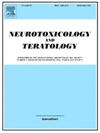草药的神经保护和认知增强潜力:关注圣约翰草,绿茶和印度人参
IF 2.8
3区 医学
Q3 NEUROSCIENCES
引用次数: 0
摘要
神经退行性疾病和认知障碍是重大的全球健康挑战,有必要探索替代和补充治疗方案。草药以其生物活性化合物而闻名,因其潜在的神经保护和认知增强作用而引起了人们的关注。本文综述了三种被广泛研究的中草药,包括圣约翰草(贯叶连翘)、绿茶(茶树)和Ashwagandha (Withania somnifera),并评价了它们促进大脑健康的机制。圣约翰草已被证明有缓解抑郁和焦虑症状的潜力,这些症状通常与认知能力下降有关。绿茶富含表没食子儿茶素没食子酸酯(EGCG)等多酚类物质,有望改善记忆功能,并提供抗氧化保护,防止神经毒性。Ashwagandha是一种适应性草本植物,被认为具有神经保护特性,包括减少压力引起的认知缺陷和促进神经元再生。这些草药的神经保护和认知增强作用归因于它们的抗氧化、抗炎和神经营养特性,这些特性可能共同支持大脑功能并减轻与年龄相关的认知衰退。本文章由计算机程序翻译,如有差异,请以英文原文为准。
Neuroprotective and cognitive-enhancing potentials of herbal remedies: Focus on St. John's wort, green tea, and Ashwagandha
Neurodegenerative diseases and cognitive impairments represent significant global health challenges, necessitating the exploration of alternative and complementary therapeutic options. Herbal remedies, known for their bioactive compounds, have garnered attention for their potential neuroprotective and cognitive-enhancing effects. This review focuses on three widely studied herbal agents, including St. John's Wort (Hypericum perforatum), Green Tea (Camellia sinensis), and Ashwagandha (Withania somnifera) and evaluates their mechanisms in promoting brain health. St. John's Wort has demonstrated potential in alleviating symptoms of depression and anxiety, which are often linked to cognitive decline. Green Tea, rich in polyphenols such as epigallocatechin gallate (EGCG), has shown promise in improving memory function and providing antioxidant protection against neurotoxicity. Ashwagandha, an adaptogenic herb, is recognized for its neuroprotective properties, including reducing stress-induced cognitive deficits and promoting neuronal regeneration. The neuroprotective and cognitive-enhancing effects of these herbs are attributed to their antioxidative, anti-inflammatory, and neurotrophic properties, which collectively may support brain function and mitigate age-related cognitive decline.
求助全文
通过发布文献求助,成功后即可免费获取论文全文。
去求助
来源期刊
CiteScore
5.60
自引率
10.30%
发文量
48
审稿时长
58 days
期刊介绍:
Neurotoxicology and Teratology provides a forum for publishing new information regarding the effects of chemical and physical agents on the developing, adult or aging nervous system. In this context, the fields of neurotoxicology and teratology include studies of agent-induced alterations of nervous system function, with a focus on behavioral outcomes and their underlying physiological and neurochemical mechanisms. The Journal publishes original, peer-reviewed Research Reports of experimental, clinical, and epidemiological studies that address the neurotoxicity and/or functional teratology of pesticides, solvents, heavy metals, nanomaterials, organometals, industrial compounds, mixtures, drugs of abuse, pharmaceuticals, animal and plant toxins, atmospheric reaction products, and physical agents such as radiation and noise. These reports include traditional mammalian neurotoxicology experiments, human studies, studies using non-mammalian animal models, and mechanistic studies in vivo or in vitro. Special Issues, Reviews, Commentaries, Meeting Reports, and Symposium Papers provide timely updates on areas that have reached a critical point of synthesis, on aspects of a scientific field undergoing rapid change, or on areas that present special methodological or interpretive problems. Theoretical Articles address concepts and potential mechanisms underlying actions of agents of interest in the nervous system. The Journal also publishes Brief Communications that concisely describe a new method, technique, apparatus, or experimental result.

 求助内容:
求助内容: 应助结果提醒方式:
应助结果提醒方式:


